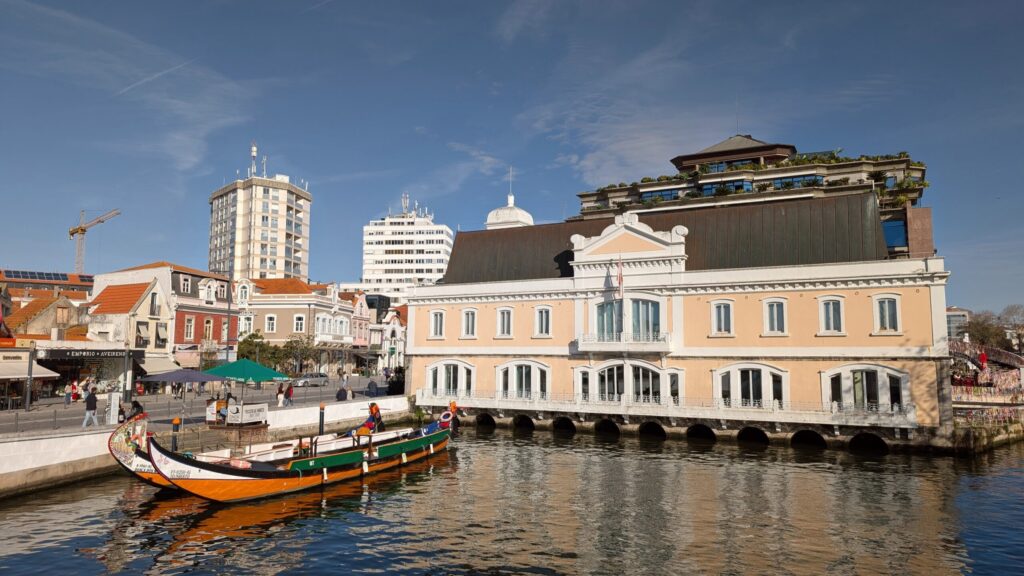Driving around in an RV sounds appealing, but what happens when we retire and no longer want to drive or have explored all the places we wanted to see in North America? Having lived in the US for some time, we’ve been fortunate to have a permanent home to return to when our RV adventures come to an end. However, is the US truly where we want to settle down? After much reflection and long conversations, the answer is… no.
“Compared to our friends and family back home, the income we have earned and saved is considerably greater than what many of our counterparts achieve in our native countries. However, the cost of living in the US is also substantially higher than in our home countries and many others around the world. “



To elaborate on that question, the answer is due to different reasons.
- Costs – As immigrants to the United States, we have been fortunate to build our financial foundation here. Compared to our friends and family back home, the income we have earned and saved is considerably greater than what many of our counterparts achieve in our native countries. However, the cost of living in the US is also substantially higher than in our home countries and many others around the world. Expenses such as healthcare, food, insurance, taxes, and housing are all significantly more expensive here. So there is an incentive to explore other countries for retirement and reducing our costs.
- Healthcare is a crucial topic that deserves more attention, especially when considering early retirement. In the US, retiring early means purchasing private health insurance, which can cost at least $11,000 per person annually until reaching Medicare eligibility at 65. In contrast, healthcare options in other countries tend to be far more affordable. For example, my wife, who is Taiwanese, can access healthcare in Taiwan at a significantly lower cost, and even paying out-of-pocket there would still be reasonable for me. Additionally, living long-term in countries like Portugal, France, Italy, or Malaysia on a resident visa requires medical insurance that is considerably less expensive than in the US. Seeing a doctor in these countries is much easier and takes less time and the quality of healthcare is pretty good as well.
- Logistics is another important consideration. Living in the US has given us great independence—the freedom to choose where we live and travel. In the early years of retirement, we would embrace an active, “go-go” lifestyle and explore as much as possible. However, as we age, that independence can sometimes become a challenge. Choosing a more accessible location where driving isn’t necessary and living in a single-level home becomes ideal. This reduces the risk of accidents and falls and lessens our dependence on cars. After all, can you imagine the difficulties of driving at 70 and beyond?
So, where to next? As mentioned earlier, we have explored several European countries, including Portugal, Spain, Italy, and France. In Portugal, we are particularly drawn to Porto. We visited Portugal last year and, coincidentally, have a friend who retired early and settled there. He lives in the northern part of Porto and has been there for nearly five years, currently on track to obtain permanent residency. Like us, he is a DINK (dual income, no kids) and is thoroughly enjoying the city and its many amenities. Porto also offers easy access to most European countries by train or plane within a few hours. Are we ready to commit to living there long term? That remains to be decided, but given how happy our friend is and our own nearly three-week visit exploring the area, Porto is definitely a place we could see ourselves calling home for the long haul.
Many retirees choose to settle in smaller cities across France, Spain, and Italy. Like us, they look for communities with other expats and a relaxed, affordable lifestyle. Some of the cities we have considered include Seville and Valencia in Spain, as well as Nice and Marseille in France. We have yet to visit France and Italy extensively, so that remains a great excuse for a future trip. 😀 The main reasons for considering these smaller cities are their lower cost of living and convenient access to major airports.
Asian countries also hold strong appeal. Malaysia and Thailand both offer long-term visa options, favorable exchange rates, and significantly lower living costs. Taiwan remains a viable choice, but ongoing geopolitical tensions on the island make us cautious about settling there permanently. While we would prefer to stay in Taiwan, we will evaluate our options when the time comes and choose what makes the most sense. If Taiwan is not feasible, our first alternative would be Malaysia. Although the MM2H program requires a substantial investment, it is a worthwhile long-term commitment since the property we purchase would be in our name. In contrast, Thailand does not allow foreign ownership of real estate, which makes it less attractive to us. The Philippines is another possibility, as it is my birthplace, but the geopolitical situation there has not significantly improved. Investing there would be a last resort if other options prove unsuitable in the years leading up to our retirement.
So with all these options, what would we choose? Maybe all of the above! 😀 As DINKs with plenty of independence, I have a feeling we’ll try them all to see what fits best. Ideally, we’d start by staying in Taiwan and explore Asia for a few years, especially while healthcare isn’t available to us and our parents need our care as they age. After that, we’d likely return to the US and spend 2–4 years RVing. Next, we’d take advantage of a long-term visa from Europe to travel extensively within the Schengen area for several years. Finally, when our wanderlust fades and our legs tire, we’d settle down in Asia, renting a small apartment with easy access to healthcare and enjoy a more relaxed lifestyle.
移居國外?在美國退休?
開著房車四處遊玩聽起來很誘人,但當我們不再想開車,或者已經探索了北美所有想去的地方時,該怎麼辦?在美國生活了一段時間後,我們很幸運,在房車探險結束後,有一個永久的家可以回去。然而,美國真的是我們想要定居的地方嗎?經過深思熟慮和長時間的溝通,答案是……不是。
詳細闡述這個問題,答案源自於不同的原因。
成本-作為移民到美國的人,我們很幸運能夠在這裡建立起自己的經濟基礎。與家鄉的親朋好友相比,我們賺取和儲蓄的收入遠高於許多同齡人在本國的收入。然而,美國的生活成本也遠高於我們的祖國以及世界上許多其他國家。醫療、食品、保險、稅收和住房等開支在這裡都高得多。因此,我們更願意去其他國家尋找退休生活,降低生活成本。
醫療保健是一個值得更多關注的關鍵主題,尤其是在考慮提前退休時。在美國,提前退休意味著購買私人醫療保險,每人每年至少要花費11,000美元,直到65歲達到聯邦醫療保險(Medicare)的資格。相較之下,其他國家的醫療保健選擇往往便宜得多。例如,我的妻子是台灣人,她在台灣的醫療費用要低得多,即使我自掏腰包,還是可以接受的。此外,持居留簽證在葡萄牙、法國、義大利或馬來西亞等國家長期居住,所需的醫療保險費用也比美國低得多。在這些國家看病更容易,耗時更少,醫療品質也相當不錯。
後勤保障是另一個重要的考慮因素。在美國生活賦予了我們極大的獨立性——可以自由選擇居住和旅行地點。退休初期,我們會選擇積極主動、「go-go」的生活方式,盡可能地探索世界。然而,隨著年齡的增長,這種獨立性有時會成為一種挑戰。選擇一個交通便利、無需開車的地方,並住在單層住宅就成了理想之選。這可以降低事故和跌倒的風險,並減少我們對汽車的依賴。畢竟,你能想像70歲以上開車的難度嗎?
那麼,接下來要去哪裡呢?如同前面所提到的,我們已經遊覽了幾個歐洲國家,包括葡萄牙、西班牙、義大利和法國。在葡萄牙,我們尤其鍾愛波爾圖。我們去年去了葡萄牙,巧合的是,我有個朋友提前退休並定居在那裡。他住在波爾圖北部,已經住了近五年,目前正在申請永久居留權。和我們一樣,他也是丁克家庭(雙收入,無子女),非常享受這座城市及其眾多的便利設施。從波爾圖出發,搭乘火車或飛機,幾個小時就能輕鬆抵達大多數歐洲國家。我們準備好長期居住在那裡了嗎?這還有待商榷,但考慮到我們朋友的幸福生活,以及我們自己近三週的當地探索之旅,波爾圖絕對是我們值得長期居住的地方。
許多退休人士選擇在法國、西班牙和義大利的小城市定居。和我們一樣,他們也希望找到有其他外籍人士居住、生活輕鬆且經濟實惠的社區。我們考慮過的城市包括西班牙的塞維利亞和瓦倫西亞,以及法國的尼斯和馬賽。我們還沒有去過法國和義大利,所以這仍然是未來旅行的好藉口。 😀 考慮這些小城市的主要原因是它們生活成本較低,而且前往主要機場交通便利。
亞洲國家也極具吸引力。馬來西亞和泰國都提供長期簽證選擇、優惠的匯率和顯著降低的生活成本。台灣仍然是一個可行的選擇,但島上持續的地緣政治緊張局勢使我們對永久定居台灣持謹慎態度。雖然我們更傾向於留在台灣,但我們會評估各種選擇,擇優選擇。如果台灣不可行,我們的首選將是馬來西亞。雖然MM2H計劃需要大量投資,但這是一個值得的長期承諾,因為我們購買的房產將登記在我們名下。相較之下,泰國不允許外國人擁有房地產,這降低了我們的吸引力。菲律賓也是個不錯的選擇,因為它是我的出生地,但那裡的地緣政治局勢並沒有顯著改善。如果在我們退休前的幾年裡,其他選擇都不合適,那麼在那裡投資將是最後的選擇。
那麼,面對所有這些選擇,我們會選擇什麼呢?或許以上所有都會! 😀 身為一個有足夠獨立性的丁克族,我覺得我們會嘗試所有方案,看看哪一個最適合。理想情況下,我們會先在台灣待上幾年,探索亞洲,尤其是在我們無法獲得醫療保健、父母年邁需要我們照顧的時候。之後,我們可能會回到美國,花2到4年體驗房車旅行。接下來,我們會利用歐洲的長期簽證,在申根區暢泳數年。最後,當我們的旅行熱情消退,雙腿疲憊不堪時,我們會在亞洲定居,租一間方便就醫的小公寓,享受更輕鬆的生活方式。

Leave a Reply